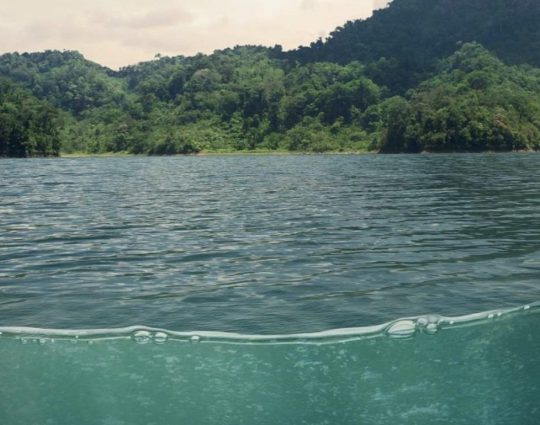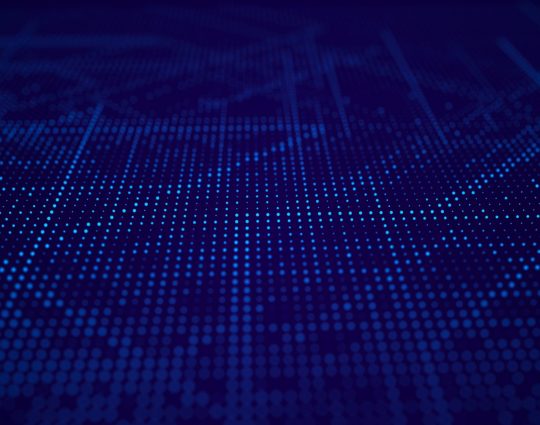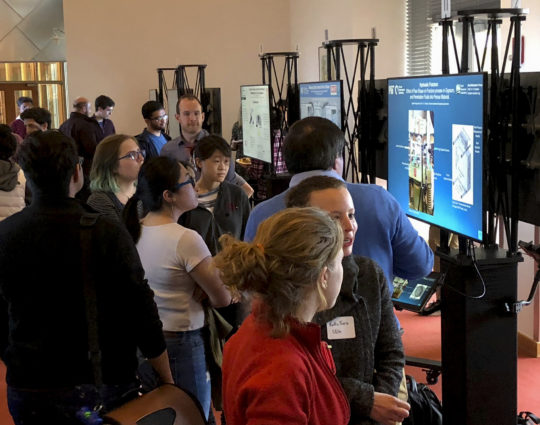
Parsons Laboratory Seminar Series
Please join us for the Ralph M. Parsons Laboratory Environmental Science Seminar Series with Pamela Hatchfield, Emerita Head of Objects Conservation at the Museum of Fine Arts, Boston for a talk titled "Fortuitous Interactions: The Role of Pollutants in the Conservation and Preservation of Cultural Heritage." The seminar is in-person at 15 Vassar Street, 48-316.

CEE Graduate Student Seminar Series
Join us for the CEE Graduate Student Seminar Series with Riccardo Fiorista from the MIT JTL-Transit Lab who will be discussing "Catching the Breeze: The Magic and Mechanics of Sailing" and Ciara Dooley from the PVLAB at WHOI who will be discussing "Getting Knitting: Hobby Turned Mild Obsession." This seminar is in 48-316.

Parsons Laboratory Seminar Series
Please join us for the Ralph M. Parsons Laboratory Environmental Science Seminar Series with Carey Nadell from Dartmouth University, who will be discussing "Spatial propagation of temperate phages within and among bacterial biofilms." The seminar is in-person at 15 Vassar Street, 48-316.

Parsons Laboratory Seminar Series
Please join us for the Ralph M. Parsons Laboratory Environmental Science Seminar Series with Professor Ying Sun from Cornell University who will discuss "Probing Global Photosynthesis for Climate Mitigation and Food Security: New Insights from Innovative Tracers through Remote Sensing and Earth System Models." The seminar is in-person at 15 Vassar Street, 48-316.

Parsons Laboratory Seminar Series: Exploring mixing and stratification in Antarctic coastal polynyas
Please join us for the Ralph M. Parsons Laboratory Environmental Science Seminar Series with Yilang Xu from MIT who will discuss "Exploring mixing and stratification in Antarctic coastal polynyas." The seminar is in-person at 15 Vassar Street, 48-316.

Parsons Laboratory Seminar Series: A 1014 scaling problem: What can soil respiration observations tell us about the global carbon cycle?
Please join us for the Ralph M. Parsons Laboratory Environmental Science Seminar Series with Ben Bond-Lamberty from Pacific Northwest National Laboratory, who will be discussing "A 1014 scaling problem: What can soil respiration observations tell us about the global carbon cycle?" The seminar is in-person at 15 Vassar Street, 48-316. The seminar is in-person at 15 Vassar Street, 48-316.

CEE Annual Research Day: CEE Across Environments
This event brings together the CEE community for a thought-provoking experience and a great opportunity to discuss civil and environmental solutions across environments through lightning-fast research talks and poster presentations by CEE faculty, students, and postdocs. It will also include light food and drink during the poster presentation reception hour.
Download the Program Agenda to learn more.

Parsons Laboratory Seminar Series: Storytelling through science: Working with journalists and the media
Please join us for the Ralph M. Parsons Laboratory Seminar Series with Inayat Singh, Knight Science Journalism Fellow from MIT, who will discuss “Storytelling through science: Working with journalists and the media." The seminar is in-person at 15 Vassar Street, 48-316.

Parsons Laboratory Seminar Series: Natural Product Antibiotics: Pass, Present, Future
Please join us for the Ralph M. Parsons Laboratory Seminar Series with Professor Mohammad R. Seyedsayamdost from Princeton University, who will discuss “Natural Product Antibiotics: Past, Present, Future." The seminar is in-person at 15 Vassar Street, 48-316.

Spring 2024 Postdoc Seminar Series
Join us for the CEE Postdoc Seminar Series with Postdoctoral Fellow Kiana Naghibzadeh, who will be discussing "Beyond Boundaries: Exploring the Mechanics of Surface Growth." This seminar is in Room 1-236.

